The distinguished French violinist and quartet leader Isabelle Flory studied with Leonid Kogan at the Moscow Conservatoire for three years. She shares her memories of his teaching methods
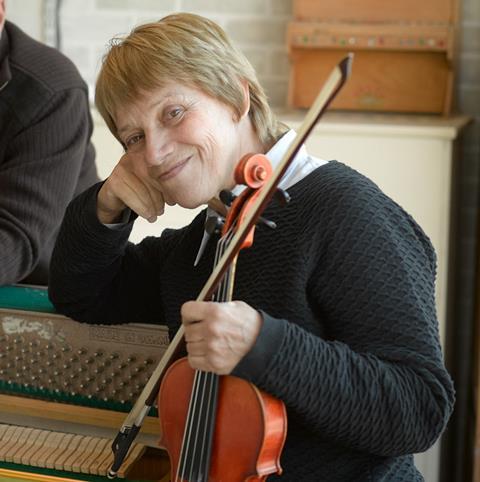
Discover more Featured Stories like this in The Strad Playing Hub
The following is an excerpt from The Strad November 2024 feature on Leonid Kogan. Subscribe and read the full article here.
I was in Moscow in 1971 when Kogan was still quite a young man, 46 or 47. I had the chance to meet him and his assistant, Volodar Bronin, whom I saw first. I was quite surprised to be asked to play scales – at the time I was already a prizewinner in the Jacques Thibaud competition. When I asked Volodar Petrovich what I should play, he said: ‘G major scale – four octaves.’ I had two or three appointments a week for two weeks, and then Bronin said: ‘He’s coming to Moscow and he wants to hear you.’
When I saw Kogan, he asked me what I wanted to play and then said: ‘Four octaves in E major.’ So I played in 3rds, fingered octaves, everything – scales and arpeggios, broken 3rds and so on. Then I had to practise Ernst’s Fantasy on Rossini’s Otello – very difficult. He said: ‘No, not the music – the notes!’ When I played him the Fuga from Bach’s Solo Sonata in G minor I was playing the chords two and two, but he wanted me to play whole chords. I learnt that ‘Not bad’ meant ‘Very, very good’!
When I arrived, I spoke Russian badly. All the other students gathered round me to ask who I was studying with. I said, ‘It will be Kogan,’ and they all said, ‘No, you should study with Oistrakh,’ because Oistrakh was Number One; he was older.
Kogan smiled very little during masterclasses – there were only masterclasses, in a wonderful big class with a white grand piano. He never demonstrated; he didn’t even have a violin in class. I regret that I missed the time later on, when he was demonstrating in class because he had changed his mind. Kogan obviously loved Kreutzer and Rode studies: during my time in Moscow I studied from Kreutzer nos.2, 3, 9 and 12, and Rode nos.2, 3, 4, 5, 7 and 8, all in one year!
After a while, Bronin told me: ‘You are going to compete in the Tchaikovsky Competition.’ I had to prepare Tchaikovsky, Mozart and the First Sonata of Beethoven. But I fell on the ice after a year and hurt my shoulder – so no Tchaikovsky Competition. Zakhar Bron was also studying in Moscow, and I was playing a silly game with him when I fell. During this time I also met Yoko Sato, Nana Jashvili and Sergey Kravchenko, all older students of Kogan.
Kogan was a fantastic player. I heard Tartini, Bach, Prokofiev, Tchaikovsky. His encores were also incredible. I heard a concert in which he played concertos by the three Bs – Bach, Beethoven and Berg – that was wonderful. He used to play the Bach sonatas with harpsichord, but with a piano. He was fantastic in French music – Franck, Debussy, Ravel. His small pieces were incredible. He also played the Soviet composers like Khrennikov.
Oistrakh was the romantic violinist. When he was in good shape he was very impressive. Kogan was not so even, but he was more adventurous. He had a very specific sound that was very special. I heard some of the greatest playing from him and I heard many records.
Yelizaveta Gilels was teaching in the same cathèdre as her husband in Moscow. She taught me afterwards in Nice at the summer academy of 1974, so that I would have more lessons than just the ones with her husband.
INTERVIEW BY TULLY POTTER
The following is an excerpt from The Strad November 2024 feature on Leonid Kogan. Subscribe and read the full article here.
Read: Great violinists: Leonid Kogan
Read: Remembering the great violinist David Oistrakh
Discover more Featured Stories like this in The Strad Playing Hub
The number one source for playing and teaching books, guides, CDs, calendars and back issues of the magazine.
In The Best of Technique you’ll discover the top playing tips of the world’s leading string players and teachers. It’s packed full of exercises for students, plus examples from the standard repertoire to show you how to integrate the technique into your playing.
The Strad’s Masterclass series brings together the finest string players with some of the greatest string works ever written. Always one of our most popular sections, Masterclass has been an invaluable aid to aspiring soloists, chamber musicians and string teachers since the 1990s.
The Canada Council of the Arts’ Musical Instrument Bank is 40 years old in 2025. This year’s calendar celebrates some its treasures, including four instruments by Antonio Stradivari and priceless works by Montagnana, Gagliano, Pressenda and David Tecchler.

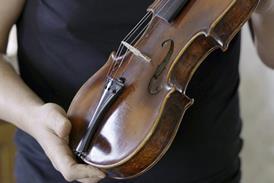
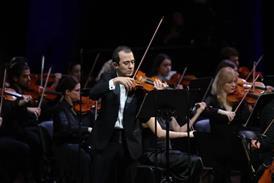
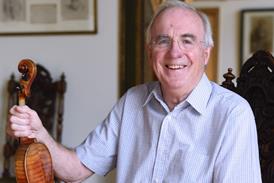
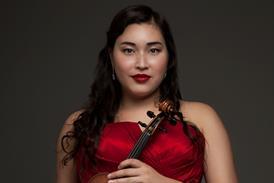




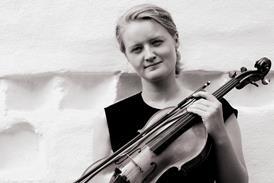




























No comments yet